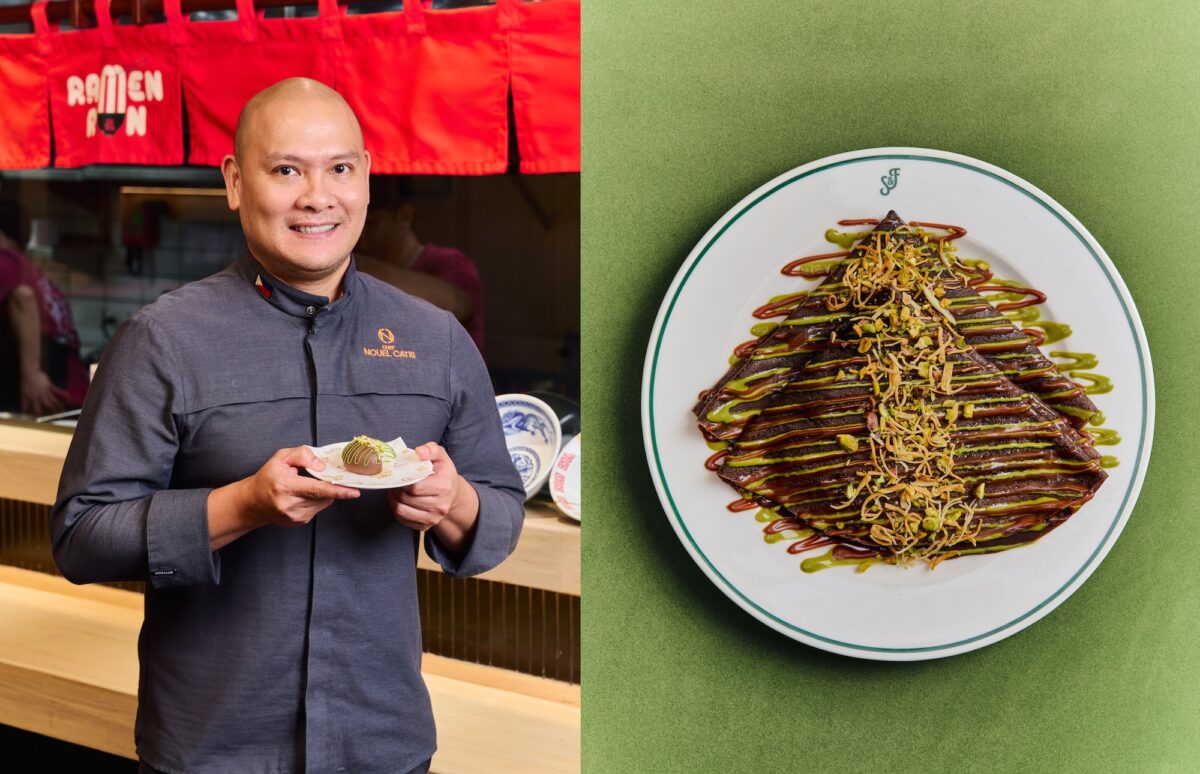What were you doing 15 years ago, Sept. 11, 2001?
It was evening here in the Philippines. I had just come out of a meeting and was walking to my car when I read a text message: “Watch CNN, a plane rammed into the World Trade.” What happened in the following hours forever changed the way we lived our lives.
On the evening of Sept. 2, 2016, the Davao night market bombing claimed 15 lives and resulted in 71 injuries—one more bombing in the spate of violence that has gripped the world.
One cannot help but exclaim, what is our world coming to?
Violence begets violence. Sin begets sin. Someone has to break the cycle.
In the first reading, Moses intercedes on behalf of those who committed transgressions and is able to avert God’s punishment. Moses breaks a cycle of transgression and punishment by pleading his case to God himself.
In the second reading, Paul expresses his gratitude for God’s grace of forgiveness and for trusting him to continue Christ’s mission. His gratitude and humility do not only restore him to grace, but also make him a channel of God’s grace for others. He breaks his cycle of sin.
Then, in the Gospel, the Parable of the Prodigal Son or the Forgiving Father is about the story of two erring sons. The younger one is always seen as the greater sinner, having squandered his inheritance in dissolute living, while the older brother is the compliant, hardworking son whose sin is more subtle—envy.
The cycle of sin is broken in the latter by the father when he goes out to appease the envious older brother. In the former, the prodigal son, the cycle of sin is broken by the sinner himself.
Our story
This is our story—or this is the story from which we can learn how to break the cycle of sin.
The younger son breaks the cycle by realizing his sin and humbling himself by going back home to his father to ask for forgiveness. He makes the choice of accepting his mistake, which leads him back home—to becoming restored and making whole again what his sin had broken and wounded: himself, his relationship with his father, his family.
The breaking of the cycle of sin and the restoration of order and wholeness happened because of the younger son’s choice. Choice is possible because of freedom. Yet we must not lose sight of the fact that it was also the freedom to choose that made this son commit sin.
The freedom to choose is central to conscience, which even God does not ask us to surrender to him. This freedom to choose is what makes sin possible; it is also what gives us the ability to love, to choose to love and dedicate our self in the service of God and others.
This is one theme in our readings this Sunday—our ability to break the cycle of sin, violence and injustice through the proper exercise of our freedom, either on behalf of others, like Moses; or through a humble and grateful acknowledgement of God’s graciousness, as in the case of Paul; or from restoring one’s personal wholeness and integrity with that of the community’s.
The story of the prodigal son shows how the proper exercise of freedom to choose allows us to break the cycle of sin and the cycle of violence. This is true on the level of the individual, and this is true on a communitarian/social level.
Why nations fail
In their 2012 New York Times and Wall Street Journal best seller, “Why Nations Fail,” Daron Acemoglu and James A. Robison present a well-written account of why some nations attain egalitarian prosperity and why others fail; why some break the cycle of the sin of inequality, injustice, poverty and oppression, and why others don’t.
The basic thesis—admittedly though I am oversimplifying for purposes of our reflection—is that inclusive political institutions and inclusive economic institutions are what allow a nation to attain egalitarian prosperity. This is a trend the authors trace through a 500-plus year survey of the history of nations.
The nations who successfully attained egalitarian prosperity made the hard choices to break the cycle of inequality, injustice, poverty and oppression, and to force the economic and political elite to allow the broad-based participation of people in governance, including holding leaders accountable to the populace.
They broke the cycle of social sin and injustice by allowing the human spirit to be free, to be creative and to pursue dreams of a better life. What was crucial in this freeing of the human spirit was that the opportunities to pursue dreams were provided for all.
Spiritual journey
The 19th-century French theorist Ernest Renan opens his famous essay, “What is a Nation?” with this line: “A nation is a soul, a spiritual principle.” We need to emphasize to one another and to our leaders that our journey to nationhood is a spiritual journey to know and nurture our soul as a people.
In this sense, our journey as a nation, as a Filipino people, is the journey of the prodigal son. We started to understand our identity and soul as a people in the period of the Propaganda movement in the second half of the 19th century, which led to the revolution and our independence.
Unfortunately, from the Filipino-American war to this day, ours is a roller-coaster journey of triumphs and frustrations, of moments of both brilliance and dark despair. Interestingly, at critical junctures of choice, we relegated our freedom to choose the path our nation should take to our leaders. But leaders cannot by themselves build a nation.
We choose leaders and make them our go-to-guy. If he fails, then he is our scapegoat. We’ve seen this once too often; perhaps it is time to learn that even this pattern we must break. As Cassius’ famous line from Shakespeare’s “Julius Ceasar” goes, “The fault, dear Brutus, is not in our stars, but in ourselves.”
Time and again, like the prodigal son, we need to come to our senses and say: “Father, I have sinned against God and against you.” Like him, we make the journey back home, but we often fall short.
Sorry state
Like the prodigal son, we must come to our senses, accept our sorry state and not make any excuses, rationalizations and explanations. We need to admit our shortcoming and failures, rise, make the journey back home and ask for forgiveness.
I end with this song: “If my people will humble themselves, humble themselves and pray; if they seek my face and humble themselves and turn from their wicked ways, I will hear from heaven and forgive their sins. I will hear from heaven and heal their land.”
“Lord, heal our land. Father, heal our land. Hear our cry and turn our nation back to You… Forgive our sin and heal our broken land.”












































